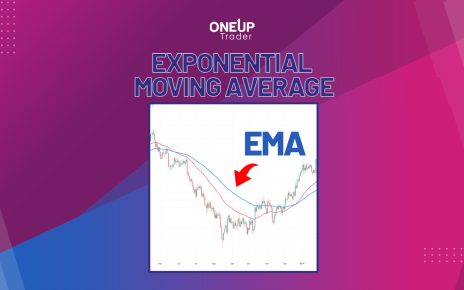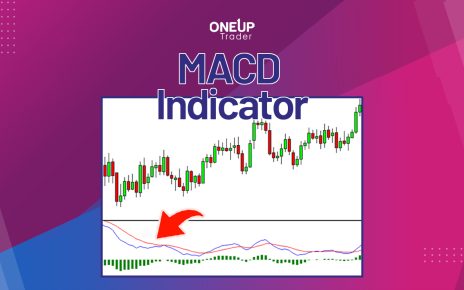The financial market offers trading and investment opportunities to the world. One of these is opening a funded trading account. But, what is a funded trader?
If you have heard that in order to be a trader you need high capital, which will be at high risk, that is true. However, there is another option where you can be a risk free trader and trade using someone else’s money.
This system is how a funded trader works. Below, we will explain more about what there is to know. We will start defining what a funded trader is, get into the funded trading programs, the basics on how to get a funded trading account, how to make money from funded trading, and how to choose the best funded trading program for you.
Do you want to get funded? Keep reading and start trading!
What is a funded trader?
Investopedia defines a funded trading account as “a proprietary trading account that allows a qualified individual to trade on behalf of a company.”
A proprietary trading account is when a financial institution uses its own capital to trade. So, as a funded trader, you will be using the firm’s capital to develop its financial transactions.
This means that you will be trading with money that is not yours, effectively making it risk free for you whilst benefiting from a share of the profits. By not opening a traditional trading account, you will also avoid having to deposit your own funds; however, you will generate a smaller share of your trading income.
This appears to be a win-win situation for both funded traders and trading partners, but there are a few more details to cover before knowing if this meets your needs and goals.
How do funded trading programs work?
Funded trading accounts are designed to employ individual traders to trade the investment firm’s capital utilizing a profit-sharing scheme. The premise is that individual traders will be able to leverage larger amounts of capital and generate greater profits than they would be able to utilize their own financial resources. Funded trading accounts tend to produce higher income for both the individual trader and the funding company. It is in the investment funding firms’ interest to retain talented traders and make sure individual traders retain a reasonable share of the profits.
Every financial funding company has its own rate structure. It is incumbent upon any trader looking to work with one of these funding companies to investigate what their percentage split of the profit would be and what the final earnings figure can be expected.
There may be additional fees for usage of trading software or account maintenance fees, etcetera, and these should all be negotiated in advance of signing any agreements.
The whole process requires full transparency by both counterparties. Prior to any agreement being signed, prospective traders must go through an evaluation and training process so the company can confirm you are competent to trade their capital as it is they taking the financial risk. We will explain the whole process in detail below.
Different types of Funded Trader accounts by OneUp Trader
How do you get a funded trading account?
As mentioned before, prior to opening a funded account, you must be evaluated to determine whether or not trading is a suitable profession for you. The evaluation will measure your trading skills and comprehension to determine if you are capable of becoming a professional trader.
The evaluation process is highly structured with rules covering risk management, profit targets, day trading conditions, maximum drawdowns, daily loss limits, and asset classes such as Forex and Futures trading. Companies such as OneUp Trader offer 1-step evaluation before funding.
To become a funded trader, you must first determine what type of business model meets your financial goals and aspirations, as well as the time you need to dedicate to it. Before actually becoming a funded trader you must complete a trading course and pass a final exam. Once you’ve overcome those hurdles, you still have to sign up for a specific account.
The investment funding firm you choose may have several account offerings. They can vary depending on the virtual starting capital, maximum position size, daily loss limit, data fees, educational content, monthly subscription, and more.
After choosing the account type you want to trade, you may have to pick which security exchanges you wish to trade on, depending upon what instruments you want to trade. There may be additional costs for real-time quotes for some of the assets you wish to trade. If you decide you want to trade oil, then you must research the correct security exchange and broker for your funded account.
Get evaluated now and start trading with your funded account!
Opening a funding trading account
Before you can start trading, you have to provide your personal information such as name, email, phone number, country, and billing information. The last step should be completing how you’d like to receive your share of the trading profits. Research what payment methods suit your personal preferences, credit or debit card, bank wire transfer, epayments, or whatever.
After you provide your personal information and details, you get to choose how you proceed to the evaluation stage. You will be directed to a webpage where you will decide whether to participate in a training course with a final exam or go directly to the evaluation. If you already have proven trading experience, you can opt to go directly to the evaluation stage; if not, the training course would be a wiser choice.
If the platform has educational content or special courses, it may contain videos, ebooks, FAQs, newsletters, or more. The investment funding company will typically offer a simulation platform that tracks real-time quotes or provides a simulation program that replicates real-time trading conditions.
This is where you will be asked to trade “paper money”- or simulated trading that tracks your trading decisions vs actual market data. If successful, by using real market data you will gain trading experience in the assets you wish to trade without risking any of your own capital.
During the trading simulation and the actual exam, you will be instructed to stay within various risk limits such as maximum daily loss, maximum position size, and more. You will probably have to trade for a predetermined period of time using the demo account so that the company can track your profits. You must accomplish steady growth.
If and when you have passed the exam, you are finally in. You must continue to demonstrate positive results. If you do not meet the financial funding firm’s profit target requirements, the company will probably revise your status, and you will simply lose access to your funded account.

How do funded trading platforms make money?
It is essential to understand every detail of “what is a funded trader” before deciding if it is a good idea for you. One of the elements is how do funded trading platforms make money and what is their business model?
When your funded trading account is open, the company wants to benefit from your performance as a trader. They get a certain percentage off of your earnings. You will increase your own capital by using theirs, but they must also generate profits out of the deal within predetermined and pre-agreed parameters.
How much of this profit do they get? It depends on their terms and conditions. They will specify an agreement with you before you sign up. If they have more than one account, each of these will have different rules and expectations. Some take 50%, which may be too much for you, while others could go as low as 20%. Other than these fixed percentages, they may also charge additional fees, as noted earlier.
The financial firm that funds the platform assumes all of the financial risks if they hire you as a funded trader; however, you have to consider the time and effort it takes to become a professional trader.
It is crucial that you meet your financial goals performing this service for them, and maximize the earnings you generate from these activities.
How to choose the best funded trader program

The funded trader program you choose must fulfill your personal and financial goals as a funded trader. What are your needs, and what goals must you accomplish to make it to the finish line? Once you have established your financial and personal requirements from assuming a role as a funded trader, you will determine the funded trader program that best suits your needs.
Each and every financial funding company offers different funded trading accounts. They differ according to their parameters; funding limits, profit sharing, position size limits, and capital management risk requirements – the maximum permitted position size, maximum daily loss, maximum drawdown, etc.
The funded trader program is a good choice if you do not have sufficient capital to trade to meet your personal financial goals but have the trading skills/knowledge to generate income. It is always a good idea to think of the funds as your own since the profit you generate will also be yours.
Finding a perfect trading partner could be the answer to your financial aspirations. However, the company will require a consistent trading performance. If you do not meet their expectations as a trader, they will close your account.
It is also essential to know what kind of asset suits your trading style. There are stock trading accounts where you can access exchanges like the NYSE and NASDAQ., funded forex trading accounts where you can buy or sell major, minor, and exotic pairs futures trading accounts – the choices are almost endless.
Options contracts are also available on a vast range of instruments, including futures contracts, so prior to embarking on the path of becoming a funded account trader, do your research!
Want to trade futures? Read Futures Trading: How And Where To Start–
Pros and cons of being a funded trader
Every financial opportunity has advantages and disadvantages. It is crucial to understand what these are so you can see if the benefits of the funded trading platforms outweigh the opportunities of trading your own capital cons and boost the benefits. Below we have made a list of what we believe are the pros and cons of being a funded trader.
Pros
- Risk-free trading for you without jeopardizing your own funds
- Not having to maintain an account balance
- You earn a percentage of the trading profits you generate
- You can utilize both long term and day trading programs
Cons
- Lack of consistent performance – they close your account
- Data and trading fees, exchange fees and the house’s share reduce profits
- You must trade according to their rules
- The funded account company’s risk management dictates trading strategies
Observations
The freedom to work remotely from anywhere is alluring to many people. As a trader, you can work from anywhere as long as you have an internet connection and a computer screen allowing you to move freely.
However, individual traders are constantly risking their own capital and must have sufficient financial power to be able to sustain losses, margin calls and drawdowns when they begin trading.
Funded traders are given a share of the profits they generate, risking an investment company’s funding capital. Any Trading partner that is providing you risk capital to trade with will expect you to generate consistent profits whilst obeying their risk management parameters. This may crimp your own personal trading style.
You are not automatically gifted a funding company’s capital. You must be evaluated, trade a paper trading account for several weeks and prove that you have the skills to become a trader. If you fail, you will not be paid for the time and effort you have spent and exerted in pursuit of this goal.
The most appropriate funded trading program for you will solely depend on your personal needs, financial goals, and time availability. If you don’t have the funds to trade your own account but have what it takes to be a trader, it might be the right option.
Remember, If you can prove you have good trading acumen, funded trading is risk free for you, you can’t lose money and yet your bank account balance will grow if you make the right trading decision., All you risk is the time you spend trying to prove yourself!
Are you ready to become a successful trader in a funded account? The market is certainly waiting for you.






